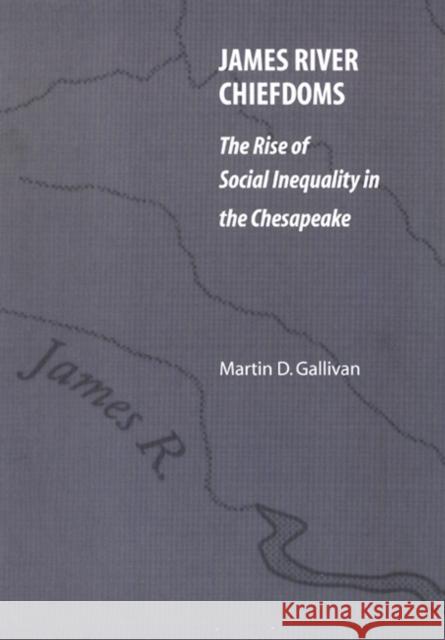James River Chiefdoms: The Rise of Social Inequality in the Chesapeake » książka
James River Chiefdoms: The Rise of Social Inequality in the Chesapeake
ISBN-13: 9780803221864 / Angielski / Twarda / 2003 / 295 str.
James River Chiefdoms explores puzzling discrepancies between the ethnohistoric and archaeological records of the Powhatan and Monacan societies Jamestown colonists met in 1607. The colonists described the coastal Powhatans and the Monacans of the James River interior in terms that evoke the anthropological notion of a chiefdom, but the Chesapeake region's archaeological record lacks elements typically associated with complex polities. In an effort to account for these apparent incongruities, Martin D. Gallivan synthesizes ethnohistoric accounts with the archaeology of thirty-five Native settlements dating from A.D. 1-1610 to identify and illuminate social changes largely undetected by previous research. A comparative, quantitative analysis of residential archaeology in the James River Valley highlights a rearrangement of daily practices within Native villages between 1200 and 1500. James River villagers reorganized their domestic production, settlements, and regional interactions to create new funds of power within social settings perched between communally oriented cultural practices and exclusionary political strategies. During the early-seventeenth-century colonial encounter, Native leaders were thus positioned to employ strategies that, for a time, eclipsed communal decision-making structures in the Chesapeake. James River Chiefdoms presents a novel perspective on an important chapter in the history of Native peoples in eastern North America and on early colonial America. It offers an innovative interpretive approach to Native American culture history and the emergence of hierarchical political organizations in the Americas. Martin D. Gallivan is an associate professor of anthropology at the College of William and Mary.











